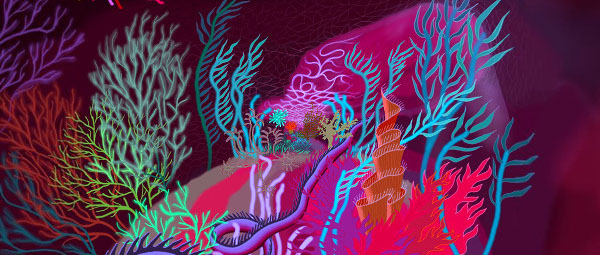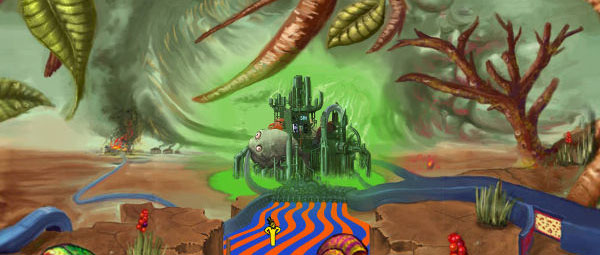✕
About the Zoomquilt
The Zoomquilt was created in 2004. The project was started by Nikolaus Baumgarten and emerged from a scene of people creating collaborative patchwork paintings together over the internet in the early 2000's on websites like tiles.ice.org. It worked similiar to the surrealist drawing game Cadavre Exquis. An artist would contribute a single tile of a patchwork painting called a "Quilt". They would reserve a spot and get a frame with a border of the neighboring tiles they had to blend their artwork into. The fun of it was to pick up and transform what the other person left and see how the painting evolved in unexpected ways.
Another inspiration for the Zoomquilt was the Gridcosm project, a similar infinite collaborative picture started in 1997 and still ongoing. On Gridcosm, anybody can contribute, which results in a very anarchic and chaotic picture. The Gridcosm website wasn't animated back then and just displayed static images. The goal of the Zoomquilt was to create a seamless animated infinite zoom illusion. When the Zoomquilt first came out in October 2004, it immediately went viral. The Zoomquilt was first released in Shockwave and Flash format, and ported to modern web standarts in 2013.
In 2007 the successor Zoomquilt 2 was released. Nikolaus Baumgarten revisited the concept again in 2015, together with Sophia Schomberg they created Arkadia, a peaceful and lush botanical fantasy plant world. In 2022 Nikolaus Baumgarten released a new successor Infinite Flowers.
Historically, the first infinite zoom animations can be found in the two movies Cosmic Zoom by Eva Szasz and Powers of Ten by Ray and Charles Eames, both 1968 and both based on the 1957 children's book Cosmic View by Kees Boeke, which deals with the relative size of things in the universe.
 Live Wallpaper for Android
Live Wallpaper for Android Infinite Flowers
Infinite Flowers Arkadia
Arkadia Zoomquilt 2
Zoomquilt 2



